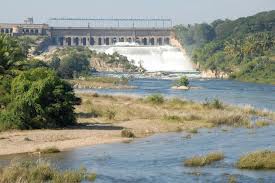 New Delhi, Jan 21: The decks have been cleared for notifiying the Cauvery Water Dispute Tribunal (CWDT) final award, with the Union Law Ministry giving its approval.
New Delhi, Jan 21: The decks have been cleared for notifiying the Cauvery Water Dispute Tribunal (CWDT) final award, with the Union Law Ministry giving its approval.
“The Law Ministry has given its nod to notify the award by clearing the draft notification. Now, the Water Resources Ministry will decide whether to go ahead with issuing the notification or not,” sources in the government told Deccan Herald.
The Law Ministry also clarified that the Inter-State Water Disputes Act, 1956, will not prevent the Centre from notifying it despite the pending petitions in the Supreme Court.
Sources said though the Water Resources Ministry is ready to issue the final notification, it has sought the Law Ministry’s opinion to avoid any legal complications. The Water Resources Ministry also referred the matter to the prime minister as the issue involved inter-state dispute.
The prime minister, who is also the chairman of the Cauvery River Authority (CRA), is likely to suggest to the ministry whether it can go ahead with the notification by the end of this month.
When the Cauvery dispute came up at the recently held Congress Core Group meeting here, it was decided that the matter be left to the prime minister to take a final call on. Water Resources Minister Harish Rawat was learnt to have briefed the core group, which includes the prime minister and party chief Sonia Gandhi.
While, on the one hand, Karnataka has opposed the notification of the final award, Tamil Nadu, on the other , has been pressing for an early notification. Though the Centre had informed the Cauvery water-sharing states of Karnataka, Tamil Nadu and Kerala and the Union Territory of Puducherry that it would notify the award by December-end, it was delayed as the matter was referred to the Law Ministry.
In what was then described as a balancing act, the tribunal gave Tamil Nadu 419 tmc of water (as against the demand of 562 tmc), Karnataka 270 tmc (as against its demand of 465 tmc), Kerala 30 tmc, and Puducherry 7 tmc. It had reserved 10 tmc for environmental protection. The tribunal’s award will come into effect within 90 days of its notification by the Centre.
After the issuance of the notification, institutions like the CRA and the CMC?will cease to exist. New organisations like the Cauvery Management Board and the Cauvery Water Regulation Committee will be constituted which will have representatives from all the co-basin states, and experts in hydrology and agriculture.
They will be under the control of the Centre.





Comments
Add new comment